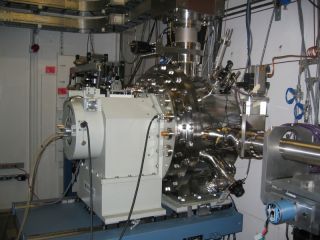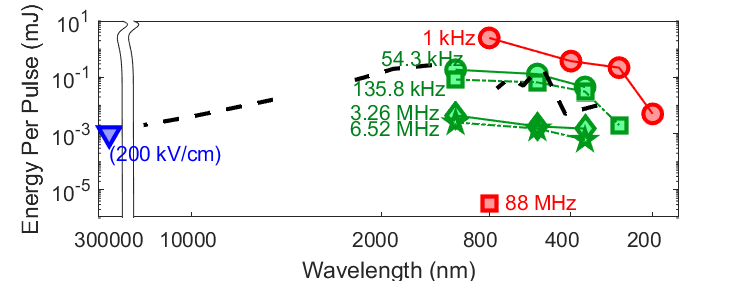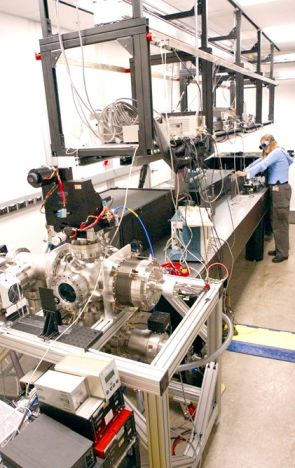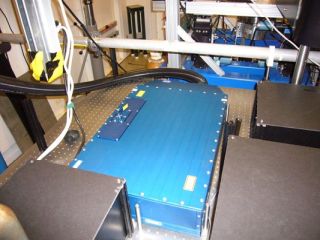|
Originally constructed and operated as "MHATT-CAT" by a consortium from University of Michigan, Howard University, and Bell Labs-Lucent Technologies, 7ID is now an APS beamline specializing in time-resolved x-ray scattering and spectroscopy. The time structure of the x-ray beam is used to achieve temporal resolution of 90 ps or less, depending on the fill pattern of the APS storage ring. Three experimental hutches allow for a wide variety of experimental setups. A climate-controlled laser lab houses a fs laser while high rep-rate lasers reside in an experimental hutch. Information on the various hutches:
The 7ID beamline is described in the following International Synchrotron Radiation Instrumentation conference proceedings:
|
| X-ray Characteristics |
Two insertion devices are available at 7ID. The first is an APS Undulator A, with a period of 3.3 cm and length of 2.4 m. A helical superconducting undulator was also installed in January 2018. The on-axis higher harmonics of the HSCU are greatly suppressed compared to a planar device, and the radiation is 100% circularly polarized (but cannot be flipped right to left). In September 2017, the 7-ID-A high-heat-load monochromator was renovated from water-cooled diamond crystals to two sets of silicon crystals that are indirectly cooled with liquid nitrogen. This upgrade has improved reliability and beam stability by replacing thin, fragile diamond crystals which were quite sensitive to mounting strain. The new monochromator features a choice of Si(111) or Si(311) crystals. Compared to the diamond (111) monochromator, Si(111) has increased the flux by a factor of ~2 and improved the performance of focusing optics. Si(311) provides a narrower energy bandpass and access to much higher x-ray energies. The 7ID-B hutch can also accept white-beam radiation. |
| Laser Characteristics |
|
Femtosecond Laser
High Rep-Rate Laser
|

 Energy range (nominal): 4.8-32 keV
Energy range (nominal): 4.8-32 keV Spectrum of pulse energies for the various laser excitation sources available at 7ID:
Spectrum of pulse energies for the various laser excitation sources available at 7ID: Located in separate, climate-controlled laser lab
Located in separate, climate-controlled laser lab Located in 7ID-D experimental hutch
Located in 7ID-D experimental hutch